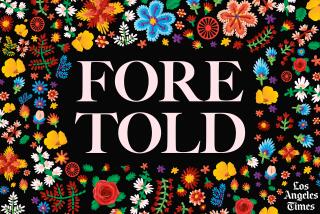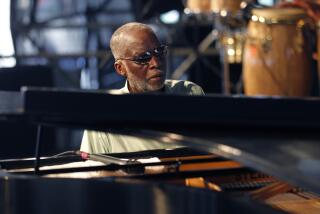Ali Farka Toure âThe Sourceâ<i> Hannibal</i>
In 1988, minutes after hearing John Lee Hooker at the New Orleans Jazz & Heritage Festival, I heard Toure, a guitarist/singer from Mali. And in one hour, I learned more about the influence of African guitar styles on American blues and folk music than I could have picked up in a week of reading about it.
On this album, Toure is joined by veteran bluesman Taj Mahal on several tunes, and they show that musical pollination is a two-way proposition. âRouckyâ has the forlorn moan of an old Muddy Waters acoustic blues, and âYennaâ bounces along like a Hooker electric boogie. One of the most impressive performances is on âCin quante Six,â a solo instrumental: Toure establishes a cleanly picked folk rhythm, then overlays a flamenco-flavored melody that suggests a meeting of Leo Kottke and the Gipsy Kings. (However, anyone who isnât conversant in the Sorhai, Tamaschek, Peul, Dogon and/or French languages is left with just the barest idea of what these songs are about. One of these days, record companies will figure out that English speakers would prefer lyric sheets to such cryptic shorthand descriptions as âBeauty is inborn, nature is best left alone.â)
More to Read
The biggest entertainment stories
Get our big stories about Hollywood, film, television, music, arts, culture and more right in your inbox as soon as they publish.
You may occasionally receive promotional content from the Los Angeles Times.










